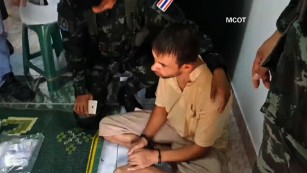Suspect in Thai blast had bomb-making material, police say
A suspect in the bombing that killed 20 people and wounded many more at a shrine in Bangkok this month had bomb-making material in his room, Thai police said Sunday.
The man was arrested Saturday and is denying any involvement, according to police spokesman Lt. Gen. Prawut Thavornsiri.
"He has been relatively cooperative," Prawut said. "He gave us some information."
Police found fuses when they searched the man's apartment in a suburb of Bangkok, according to Prawut.
However, he is not the man in a yellow T-shirt and dark-framed glasses who was identified from surveillance video as the chief suspect in the bombing, Prawut said.
"The man we have is not the man in the sketch, but we believe he is part of the network which carried out the two bomb incidents," he said.
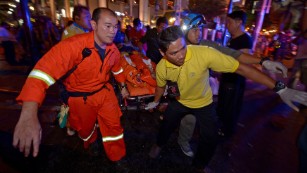
31 photos: Explosion in Bangkok
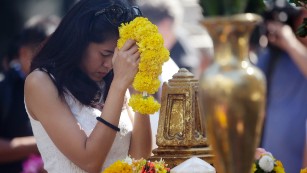

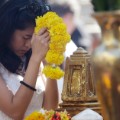
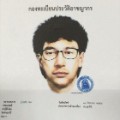
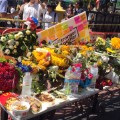
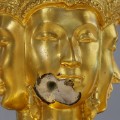
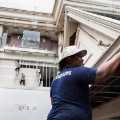
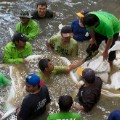

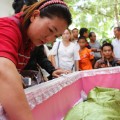
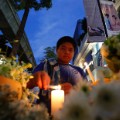
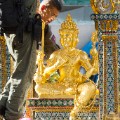
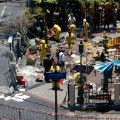
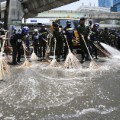

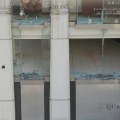
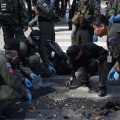
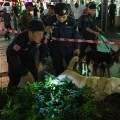
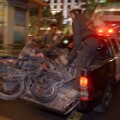
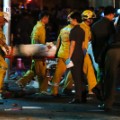
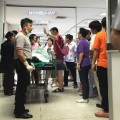
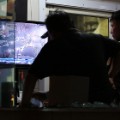
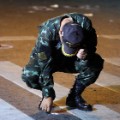

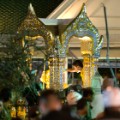
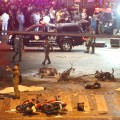
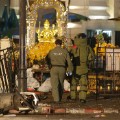
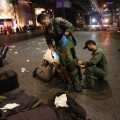
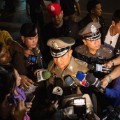
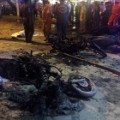
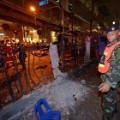
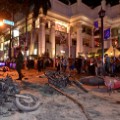
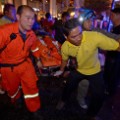
Prawut initially said the suspect arrested Saturday was a Turkish national. But he subsequently told CNN: "At first we thought he is Turkish. But we just found out two Turkish passports he is holding are all fake.
"We also found many empty fake passports, also various kinds of evidence."
Prawut said investigators hunting for clues had "also found the same type of ball bearings in this man's apartment."
High-ranking police officers, forensic experts and army personnel were all seen outside the building shortly after news of the arrest broke.
The apartment is in the Nong Jok suburb, an area known to house a large Muslim community.
No claim of responsibility
The deadly explosion at Bangkok's Erawan Shrine -- a spot popular with tourists and locals -- wreaked havoc on August 17.
Authorities have said the main suspect they're looking for is an unidentified foreigner, the man in the yellow T-shirt, who was caught on surveillance video hiding a backpack under a bench at the shrine minutes before the bomb detonated.
Bangkok blast victim: 'I lost everything'
At least 10 people may have taken part in the bombing, but the attack is unlikely to be linked to international terrorist groups, Thai authorities said.
Police said a week ago that they no longer believed that three other people seen near the main suspect on surveillance video were involved in the attack.
There has been no claim of responsibility for the bombing. Thai authorities haven't said what they think the motive for it might have been, other than making vague references to unspecified people or groups who want to hurt Thailand's tourism industry and economy.
Thai security forces are sharing information with Interpol, the global police organization, and with intelligence agencies from allied countries, officials said.
Royal Thai Police Commissioner Gen. Somyot Poompanmoung said that he believes "several teams" were involved in the preparation and execution of the attack, which killed at least 20 people and wounded more than 120.
"This operation was carried out by a big network," he said.
Police offered a reward for information leading to the suspect's arrest, but it's not clear if that was a factor in Saturday's arrest.
Foreign visitors among blast victims
Bangkok, which was convulsed by political unrest last year, has experienced small-scale bomb and grenade attacks in the past but nothing of the magnitude of the shrine blast. Two devices exploded at an upscale shopping mall in February but didn't cause any casualties.
The shrine is a major draw situated at a bustling intersection near a large shopping mall.
At least seven people from other Asian countries were reported to be among the dead as well as one Briton. The site is popular among Buddhists as well as Hindu and Sikh members of Thailand's Indian community.
News Courtesy: www.cnn.com

